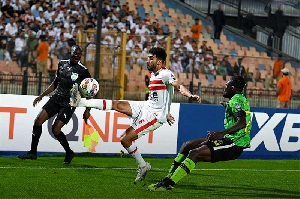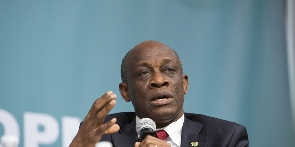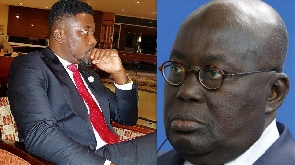- Home - News
- TWI News | TV
- Polls
- Year In Review
- News Archive
- Crime & Punishment
- Politics
- Regional
- Editorial
- Health
- Ghanaians Abroad
- Tabloid
- Africa
- Religion
- Election 2020
- Coronavirus
- News Videos | TV
- Photo Archives
- News Headlines
- Press Release
General News of Friday, 5 March 1999
Source: Reuters
Ghana's Westel faces telecoms hurdles
08:45 a.m. Mar 04, 1999 Eastern
By Els Botje
ACCRA, March 4 (Reuters) - Westel, Ghana's second phone network operator, is ready to take on the former state monopoly after the signing of an interconnection agreement in December, but faces various obstacles, its acting managing director said.
Westel Telesystem Ghana Ltd, 56 percent owned by Western Wireless (WWCA.O) of the U.S., won its licence in December 1996 but only really got started in January 1999 with the provision of pay phones in Accra and the sale of pre-paid phone cards.
``The plans for additional investments are substantial,'' William Taylor, also managing director of Western Wireless, told Reuters on Wednesday on the sidelines of an African telecoms conference.
Westel has planned a full range of services including fixed wireless phones, pay phones and cellular phones, he said.
``We are in the process of deciding whether to bring in GSM. The intended costs involved are approximately $35 million.''
Development of its operations has been hampered by talks on interconnection with Ghana Telecom (GT) that took 18 months until December.
``There were a number of issues that had to be resolved in terms of capacity, tariffs and interconnection. From a technical point of view these issues are complex. However, we think that these discussions were a bit prolonged,'' Taylor said.
Signing the deal was not the end of the problems.
In January 1999 Westel launched its prepaid call card but this soon ran into snags.
``This card is very attractive because customers do not have to look for a pay phone but can use any phone by simply dialling a specific number. A few days after the launch, however, GT cut off the exchange number used to deliver our service,'' Taylor said.
GT said the service fell outside the interconnection deal, a view Taylor said would not be accepted internationally.
Westel also believed the matter should have been put before the regulatory National Communications Authority (NCA) by GT.
``GT did not do that...We complained with the NCA, and they suggested strongly to GT that they restore the connection while we negotiate, but they didn't do that and they still haven't.''
Regulation in general was a problem in Ghana, Taylor said.
Telekom Malaysia Berhad (TLMM.KL) took a 30 percent stake in Ghana Telecom in February 1997 and the National Communications Authority was then set up to regulate the liberalised industry.
However, a commissioner was not appointed, nor a full commission, which Westel greatly regretted.
``Without a strong regulator it is very difficult to have a free and fair operating environment,'' Taylor said.
``We have certain requirements under our licence. We must provide 50,000 new lines in three years and 500 pay phones in five years. Obviously we cannot meet those requirements if we are not allowed to operate,'' he said.
``There is a tremendous backlog in telephone lines at the moment, about 200,000 to 300,000, and we see that as an opportunity for both GT and Westel.''
GT was worried Westel might cream off its best customers, a concern Taylor sympathised with to an extent, since GT as primary operator had a duty to serve everyone, including rural areas where providing lines is difficult and expensive.
But the aim of liberalisation was to provide quality services and increase capacity in general, he said, and Westel would gradually move to cover a wider area of the country.
``That is our mission -- to support the development of the country, to provide services that were not available in the past and improve the quality of those services.''










